Experts warn against choosing sides in ME conflicts
Emphasise upon the need for a more robust and diverse relationship with the region
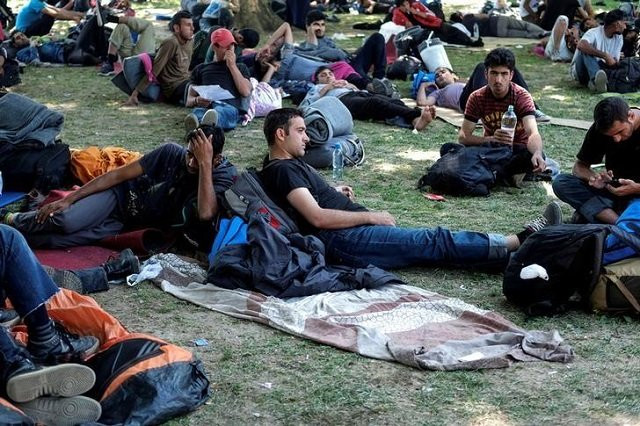
File Photo: Migrants from the Middle East and Asia rest in a park before they start walking on their way to Hungary in Belgrade, Serbia.
PHOTO: REUTERS
This was stated by speakers at the one-day panel discussion on ‘Dynamics of Contemporary Middle East: Role of Pakistan’. The event was organised by the Islamabad Policy Research Institute in Islamabad on Wednesday.
There is a need for a more robust and diverse relationship with the region that focuses on developing sociocultural ties as well as increased cooperation in areas of politics, security and defence.
These were some of the recommendations and reflections shared by
IPRI President Ambassador Vice Admiral (retired) Hasham Bin Saddique said that due to the hands-off policy of US President Donald Trump in the Middle East and the rise of multipolarity, there is a need for a rebalancing of power in the region with states on the one side and non-state actors, on the other.
“Unfortunately, there is no regional mechanism to address the issue of peace and stability in the Middle East,” Vice Admiral Saddique said, adding that the Middle East has been in turmoil since the 1980s.
“While the Gulf Cooperation Council (GCC) exists, its role has not emerged as it was envisioned to be,” he lamented.
Pakistan, he said, was in a unique position because it has “traditionally enjoyed cordial relations with most of the countries in the Middle East, particularly in the political and security cooperation arena.”
PM Imran offers role to heal Middle East conflicts
However, he said that Islamabad needs to have a more robust and diverse relationship with the region which focuses on developing sociocultural ties as well as economic collaboration and predicted ties with middle eastern countries will only improve.
In a working session moderated by Ambassador (Retd) Zamir Akram, Quaid-i-Azam University’s Director School of Politics and International Relations Prof Dr Nazir Hussain spoke on ‘Middle East Geostrategic Conundrum: Implications for Pakistan.’
He said that owing to its geostrategic position and rich-energy resources, the Middle East is one of the most important regions of the world.
However, it was currently facing an inescapable security conundrum due to its internal instability, chaos and disorder.
“At the regional level, the far-reaching Arab Spring has pushed Syria, Iraq, Libya and Yemen into the ranks of failed states. The rise of the Islamic State (IS) has emerged as the worst radical threat to the region’s modern history, challenging the regional political order by wiping out the territorial borders and spiralling beyond its borders,” Prof Hussain said, adding that despite the fragility and volatility of the region it remains important.
He lamented that there is a shortage of local academic research on the Middle East.
Discussing the issue of mediating regional rivalries and Pakistan’s role, Ambassador (retired) Javed Hafeez was of the view that Pakistan needs to recognise that the Middle East controls three important commercial shipping lanes, including the Strait of Hormuz, the Gulf of Aden and the Suez Canal.
He noted that the Shia crescent and Sunni axis conflict has been exaggerated by the Western media. “These are not permanent fault lines, they keep on changing,” he pointed out. However, he warned that Pakistan must restrain its eagerness to mediate this minefield and wait to be invited by the parties involved.
Moreover, he said that the mediator needs to be seen as completely neutral, more like Oman. However, because of its size and compulsions, Pakistan, he contended, cannot become an Oman.
Thirdly, a mediator needs to be strong, with its own house in order, with peace within and without. “Pakistan does not qualify on these parameters and should not impose itself in Middle Eastern affairs. Wait for the right time and then step in because this time, the stakes are higher and the situation more complex than what it was in the 1990s,” he stressed.
UN chief says 'time to stop violence' in Middle East
“Pakistan must take its relations with the Middle East seriously. Our future relations with the Arabs needs to have more economic and commercial content. And to promote economic interaction, we have to restore the health of our economy, make Pakistan more secure and improve our image. Foreign relations are not guided by ideological factors or romantic perceptions. It is a game of pragmatism.”
Speaking on ‘Safeguarding Pakistan’s Interest in the Middle East’, National University of Sciences and Technology Department of Peace and Conflict Studies Associate Dean Prof Dr Tughral Yamin shared vital statistics about Pakistan-Middle East linkages. He pointed out that 184, 000 Pakistani pilgrims will perform Hajj this year – 5,000 more than last year. However, he also added that overall foreign remittances which stand at USD$19.62 billion from Saudi Arabia are declining, whereas they are increasing from the UAE.
Prof Yamin said that while oil, trade routes, geography and terrain, faith and ideology, all contribute to the strategic importance of the Middle East, ‘Pakistan should not be seen merely as a poor nation forever seeking aid and oil on deferred price; as a provider of cheap unskilled labour; and source of a readily available military force that can be used as cannon fodder. Pakistan should rebrand itself as a country that is not only militarily powerful, but is a hub of knowledge, an emerging market producing quality agricultural as well as industrial finished goods at competitive rates, and as a peaceful and harmonious tourist destination.’
Moreover, participants of the discussion spoke about the Islamic Military to Counter Terrorism Coalition (IMCTC) is a team of 41 willing countries that forms a pan-Islamic unified front in the global fight against terrorism and violent extremism, and is not against any Muslim country and reflected over Pakistan’s policy on Yemen which is governed by the UN Security Council Resolution 2216 under which the country supports restoration of legitimate President Hadi’s government and peaceful solution in the light of the Gulf peace initiative and national dialogue.
Furthermore, they confirmed that Pakistan steadfastly supports the cause of Palestinians.
Published in The Express Tribune, March 14th, 2019.

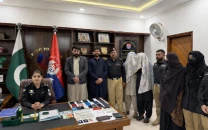
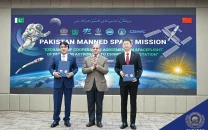
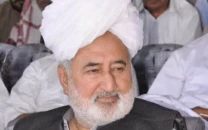

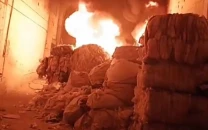
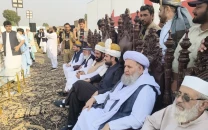












COMMENTS
Comments are moderated and generally will be posted if they are on-topic and not abusive.
For more information, please see our Comments FAQ